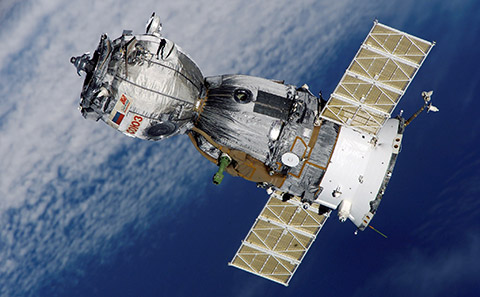New study to improve astronauts’ health on board the International Space Station (ISS)
The University of Southampton will work with space health experts at Northumbria University on new research into how astronauts’ bodies decondition while living and working on the International Space Station (ISS).

Image: Pixabay
The findings of the study will also be significant for research on Earth to help people who experience mobility issues due to health conditions or their lifestyle.
Orbiting the Earth at an average altitude of 250 miles, astronauts on board the ISS experience significant deconditioning of their bodies due to the reduced gravity environment. Their muscles become smaller and weaker, and their bones lose density.
A team from Northumbria University’s Aerospace Medicine and Rehabilitation Laboratory, led by Professor Nick Caplan, working with the University of Southampton and Durham University, has secured funding from the UK Space Agency to explore the decline in size, quality and strength of spinal muscles among astronauts after spending six months living and working on the ISS.
They will also assess changes in astronaut spinal posture, their walking technique, control of movement and pain, immediately following the astronauts’ returning from their mission to see if these changes are related to the changes seen in their spinal muscles and bones. The team will also repeat their measurements 30 days after landing to evaluate the effects of the intense astronaut reconditioning programmes in the first month returning to Earth.
“Understanding the changes that take place in the spinal muscles and bones following exposure to microgravity is vital so that effective interventions can be developed to maintain spinal health,” said Professor Caplan. “Our research will provide this information and hopefully help astronauts stay injury free as they venture further out into the solar system to the Moon and, one day, to Mars. We are really excited about recruiting our first astronauts onto the study.”
Maria Stokes OBE, Professor of Musculoskeletal Rehabilitation at the University of Southampton added: “Our research is very relevant to healthcare on Earth, as microgravity leads to rapid changes like those seen in patients for example, after an acute injury or enforced bed rest on intensive care, as well as longer-term changes from inactivity due to diseases affecting mobility or a sedentary lifestyle in the general population. Our findings should help us develop more effective ways of targeting exercises to prevent loss of muscle function.”
The latest study at is one of five new projects set to receive a share of £440,000 of UK Space Agency funding in its first year.
British European Space Agency astronaut Tim Peake said: “It’s exciting to see this cutting-edge research taking place here in the UK. We can learn so much about the human body from spaceflight, especially the ageing process. This research could enable astronauts to carry out longer missions and explore further into space, whilst benefiting everyone on Earth.”
Science Minister George Freeman said: “Our space science is about cutting-edge life science as well as rocketry and satellites: the UK is at the heart of state-of-the-art biomedical monitoring, providing huge potential insights into human health.
“This research could allow astronauts to safely embark on longer and more challenging missions, for the benefit of us all.”